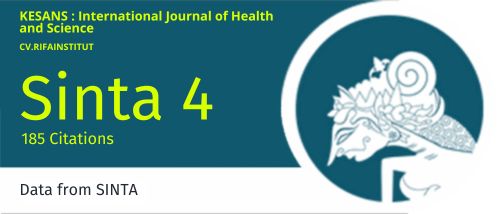The Effect of Work Shifts on Fatigue and Work Stress in Medical Personnel at Hospital X Batam City in 2025
DOI:
https://doi.org/10.54543/kesans.v4i10.386Keywords:
Work Shift, Fatigue, Work Stress, Medical Personnel, HospitalAbstract
Introduction: Work shifts are a work system that is commonly applied in hospitals to ensure that health services last for 24 hours. However, the implementation of work shifts, especially night shifts and irregular rotations, can have a negative impact on the physiological and psychological conditions of medical personnel, such as fatigue and work stress. Objective: This study aims to analyze the effect of work shifts on the level of fatigue and work stress in medical personnel at the Batam City Regional Hospital. Method: The research uses a quantitative method with a cross-sectional approach. Samples were taken purposively as many as 100 medical personnel working with a shift system. The instruments used included the Standard Shiftwork Index (SSI) and Job Stress Scale (JSS) questionnaires. Result and Discussion: The results of the analysis showed a significant relationship between the type of work shift and the level of fatigue (p < 0.05) and work stress (p < 0.05). Medical personnel who work night shifts and rotational shifts tend to have higher fatigue and stress scores compared to morning shifts. Conclusion: The study concludes that a poorly managed work shift system can increase the risk of fatigue and work stress, which can ultimately impact patient safety and work productivity. Therefore, hospital management needs to consider more ergonomic shift scheduling as well as provide a stress management and workforce recovery program.
Downloads
Published
How to Cite
Issue
Section
Citation Check
License
Copyright (c) 2025 Andi Sarbiah, Juhanda Kartika Wijaya, Leni Utami

This work is licensed under a Creative Commons Attribution-ShareAlike 4.0 International License.





















